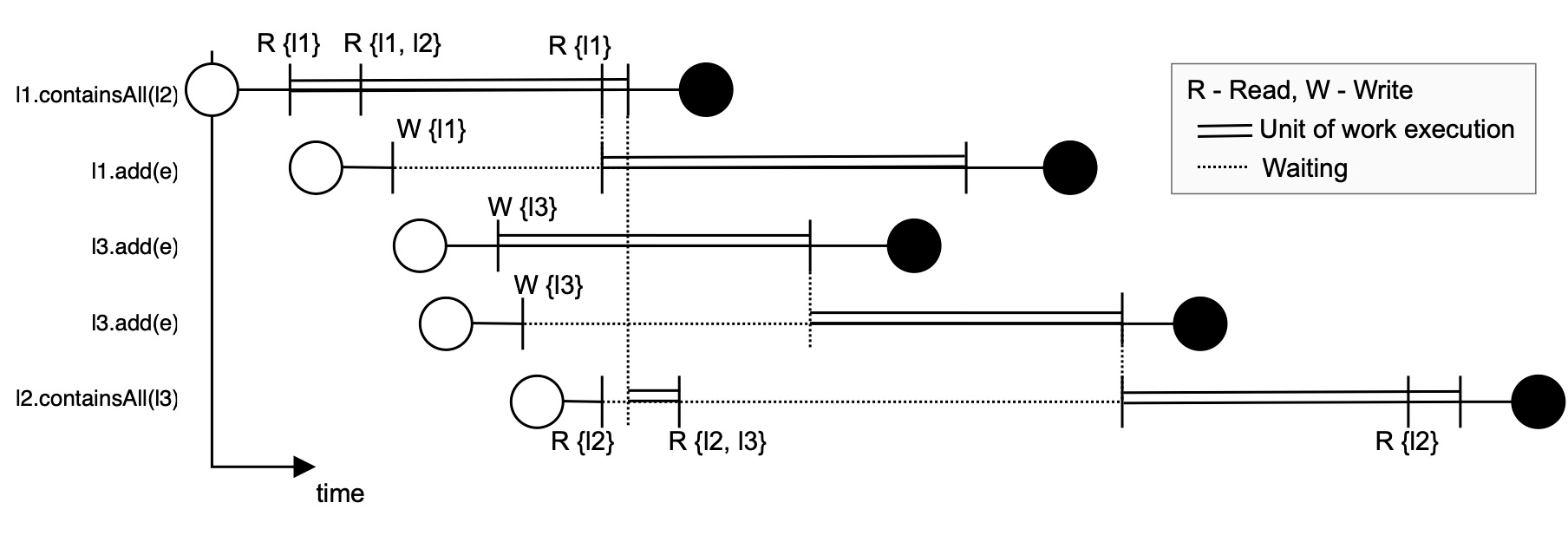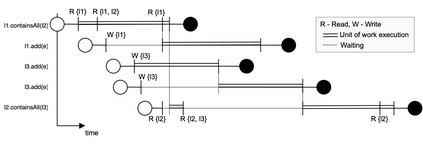Data-Centric Concurrency Control (DCCC) shifts the reasoning about concurrency restrictions from control structures to data declaration. It is a high-level declarative approach that abstracts away from the actual concurrency control mechanism(s) in use. Despite its advantages, the practical use of DCCC is hindered by the fact that it may require many annotations and/or multiple implementations of the same method to cope with differently qualified parameters. Moreover, the existing DCCC solutions do not address the use of interfaces, precluding their use in most object-oriented programs. To overcome these limitations, in this paper we present AtomiS, a new DCCC model based on a rigorously defined type-sound programming language. Programming with AtomiS requires only (atomic)-qualifying types of parameters and return values in interface definitions, and of fields in class definitions. From this atomicity specification, a static analysis infers the atomicity constraints that are local to each method, considering valid only the method variants that are consistent with the specification, and performs code generation for all valid variants of each method. The generated code is then the target for automatic injection of concurrency control primitives, by means of the desired automatic technique and associated atomicity and deadlock-freedom guarantees, which can be plugged-into the model's pipeline. We present the foundations for the AtomiS analysis and synthesis, with formal guarantees that the generated program is well-typed and that it corresponds behaviourally to the original one. The proofs are mechanised in Coq. We also provide a Java implementation that showcases the applicability of AtomiS in real-life programs.
翻译:暂无翻译





